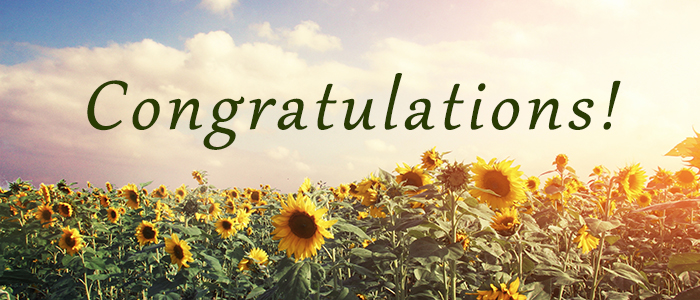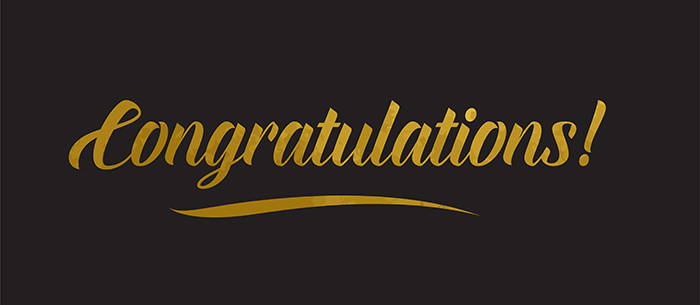[vc_row][vc_column][vc_empty_space][/vc_column][vc_column][vc_single_image image=”56596″ img_size=”full” alignment=”center” style=”vc_box_shadow_3d”][/vc_column][vc_column][vc_column_text]
July 27, 2021
Several Global Change Center faculty members have recently completed terms on the GCC Advisory Committee. Each member has shown great leadership and resilience during a year of an unprecedented global adversities through their research, teaching, and guidance of the GCC. Please join us in thanking Brian Badgley, Kelly Cobourn, Brian Romans, and Kendra Sewall, who have provided extraordinary service over the past two years!
Welcome Leandro Castello, Chloé Lahondère, Kevin McGuire, and Ignacio Moore who will serve through 2023![/vc_column_text][/vc_column][/vc_row][vc_row][vc_column][vc_row_inner][vc_column_inner width=”1/3″][vc_separator style=”double” css=”.vc_custom_1597703213177{margin-top: 3px !important;}”][/vc_column_inner][vc_column_inner width=”1/3″][vc_column_text]
Current GCC Advisory Board Members
[/vc_column_text][/vc_column_inner][vc_column_inner width=”1/3″][vc_separator style=”double” css=”.vc_custom_1597703218869{margin-top: 3px !important;}”][/vc_column_inner][/vc_row_inner][vc_row_inner][vc_column_inner width=”1/4″][vc_single_image image=”39412″ img_size=”200×200″ alignment=”center” css=”.vc_custom_1626546993229{margin-bottom: 2px !important;}”][vc_column_text]
Bill Hopkins
[/vc_column_text][/vc_column_inner][vc_column_inner width=”1/4″][vc_single_image image=”50471″ img_size=”200×200″ alignment=”center” css=”.vc_custom_1626547002925{margin-bottom: 2px !important;}”][vc_column_text]
Sally Entrekin
[/vc_column_text][/vc_column_inner][vc_column_inner width=”1/4″][vc_single_image image=”34364″ img_size=”200×200″ alignment=”center” css=”.vc_custom_1626547012535{margin-bottom: 2px !important;}”][vc_column_text]
David Haak
[/vc_column_text][/vc_column_inner][vc_column_inner width=”1/4″][vc_single_image image=”44762″ img_size=”200×200″ alignment=”center” css=”.vc_custom_1626547020410{margin-bottom: 2px !important;}”][vc_column_text]
Leah Johnson
[/vc_column_text][/vc_column_inner][/vc_row_inner][/vc_column][/vc_row][vc_row css=”.vc_custom_1597703237650{margin-top: -2px !important;margin-bottom: -2px !important;}”][vc_column][vc_row_inner][vc_column_inner width=”1/4″][vc_single_image image=”34212″ img_size=”200×200″ alignment=”center” style=”vc_box_border” border_color=”blue” css=”.vc_custom_1626290960886{margin-bottom: 2px !important;}”][vc_column_text]
Leandro Castello
New member
[/vc_column_text][/vc_column_inner][vc_column_inner width=”1/4″][vc_single_image image=”41431″ img_size=”200×200″ alignment=”center” style=”vc_box_border” border_color=”blue” css=”.vc_custom_1626376613749{margin-bottom: 2px !important;}”][vc_column_text]
Chloé Lahondère
New member
[/vc_column_text][/vc_column_inner][vc_column_inner width=”1/4″][vc_single_image image=”55948″ img_size=”200×200″ alignment=”center” style=”vc_box_border” border_color=”blue” css=”.vc_custom_1626377013639{margin-bottom: 2px !important;}”][vc_column_text]
Kevin McGuire
New member
[/vc_column_text][/vc_column_inner][vc_column_inner width=”1/4″][vc_single_image image=”35879″ img_size=”200×200″ alignment=”center” style=”vc_box_border” border_color=”blue” css=”.vc_custom_1626377118676{margin-bottom: 2px !important;}”][vc_column_text]
Ignacio Moore
New member
[/vc_column_text][/vc_column_inner][/vc_row_inner][/vc_column][/vc_row][vc_row][vc_column][vc_column_text]
A special thank you to these outgoing Advisory Committee members!
We deeply appreciate your time, energy, and balanced guidance in this leadership role.
[/vc_column_text][vc_row_inner][vc_column_inner width=”1/4″][vc_single_image image=”35972″ img_size=”200×200″ alignment=”center” css=”.vc_custom_1626546913554{margin-bottom: 2px !important;}”][vc_column_text]
Brian Badgley
[/vc_column_text][/vc_column_inner][vc_column_inner width=”1/4″][vc_single_image image=”45945″ img_size=”200×200″ alignment=”center” css=”.vc_custom_1626546932454{margin-bottom: 2px !important;}”][vc_column_text]
Kelly Cobourn
[/vc_column_text][/vc_column_inner][vc_column_inner width=”1/4″][vc_single_image image=”38281″ img_size=”200×200″ alignment=”center” css=”.vc_custom_1626546943036{margin-bottom: 2px !important;}”][vc_column_text]
Brian Romans
[/vc_column_text][/vc_column_inner][vc_column_inner width=”1/4″][vc_single_image image=”34810″ img_size=”200×200″ alignment=”center” css=”.vc_custom_1626546961960{margin-bottom: 2px !important;}”][vc_column_text]
Kendra Sewall
[/vc_column_text][/vc_column_inner][/vc_row_inner][/vc_column][/vc_row][vc_row][vc_column][vc_separator color=”black” style=”shadow”][vc_column_text]
The Global Change Center Advisory Committee is composed of GCC affiliated Virginia Tech faculty representing the broadly defined thematic areas of the center (habitat loss, pollution, invasive species, disease, climate change), plus others in relevant fields (e.g., sociology, economics, policy, history). Committee members are appointed by the GCC Director Bill Hopkins for two-year terms, and represent a balance of perspectives and interests from around campus. The mission of the committee is to develop policies, goals, and directives of the center, as well as assisting in conducting the center’s business.
[/vc_column_text][/vc_column][vc_column][/vc_column][/vc_row]



